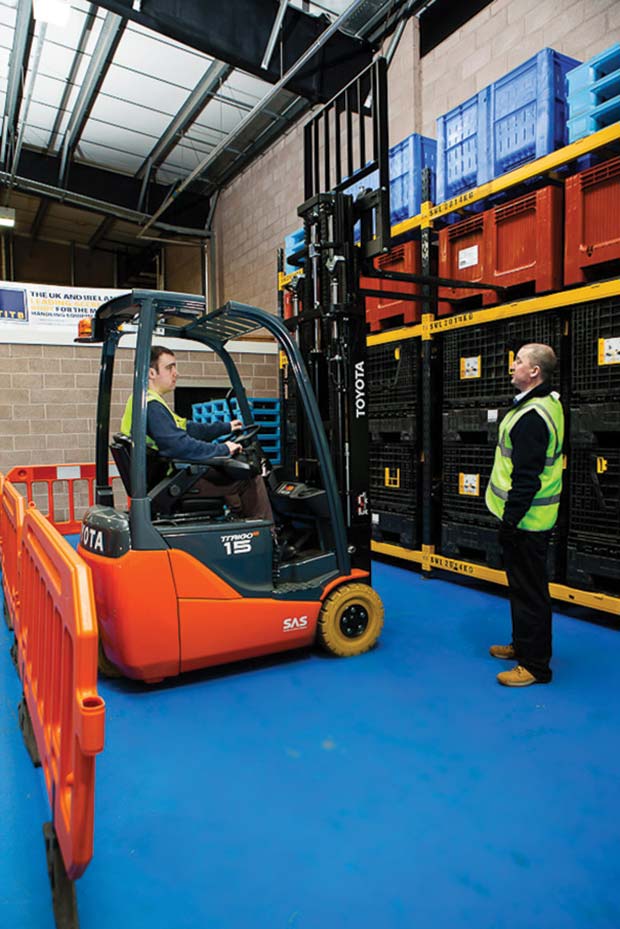Like many other business owners or managers, you might feel that in these tough economic times training is one more cost you could do without. But it’s possibly the one cost you can’t do without.
 Whether it’s basic training for novices or ten-year veteran operators in need of refresher or conversion training, selecting the right organisation to train your staff is a difficult choice, and it can often seem all too tempting to cut corners and go for the cheapest, easiest, quickest route. Often this kind of short-term thinking can lead to expensive long-term repercussions – the trade press is regularly littered with examples of incidents that have training issues at their heart.
Whether it’s basic training for novices or ten-year veteran operators in need of refresher or conversion training, selecting the right organisation to train your staff is a difficult choice, and it can often seem all too tempting to cut corners and go for the cheapest, easiest, quickest route. Often this kind of short-term thinking can lead to expensive long-term repercussions – the trade press is regularly littered with examples of incidents that have training issues at their heart.
Make the wrong choice and you could be looking at badly trained operators, incidents, investigations, fines and other uncomfortable proceedings that might follow. Make the right choice and you could have an efficient and safe workforce trained to a high standard plus, crucially, the all-important training records that are required as part of your legal obligation.
The Health and Safety Executive’s (HSE) Approved Code of Practice (ACoP) for rider operated lift trucks is quite clear about an employer’s obligations in this matter. The ACoP enjoys an interesting legal status in as far as it’s not a criminal offence to not follow its guidance, however non-compliance or a lack of proof of compliance could lead to significant legal issues should the worst ever happen. So how does an employer satisfy themselves that the training provider they choose operates in accordance with the ACoP? Perhaps more importantly, can the employer prove that they took appropriate steps to provide suitable training, through records, etc.?
There are a lot of variables to consider, including instructor qualification and relevant experience, facilities and equipment, administrative systems and record keeping. How can you be sure that the training provider you select comes up to the required standard?
It comes down to a choice between Accredited Training and Non-Accredited Training – or, on one hand training that is proven to meet the standards for operator training set down in the ACoP and, on the other hand, training that makes no claim to meet the required standard or that, crucially, can’t be proven to meet the standard.
Selecting a training provider who has been accredited by an official accrediting body to provide workplace transport training is the best way of ensuring that the training your operators receive meets the standards found in the ACoP and, critically, it is the best way of ensuring that records of the training are created and kept. Any training provider accredited by RTITB, for example, must fulfil specific criteria relating to course content, course delivery, facilities, and equipment, not to mention instructor qualifications and training records. What’s more, a robust monitoring and auditing process ensures continued compliance. Falling short in any of these areas at any time could result in that organisation losing their accredited status, which is why it is critical that accrediting bodies not only monitor their organisations but offer support that helps them meet the required standard. As an employer you can rest assured that any RTITB accredited training provider you select is being monitored and supported to provide the service you need to meet your obligations.
Of course, training isn’t just a one-time event in an operator’s life, and it should be about more than just complying with rules and regulations; it’s about laying a solid foundation for safe operation and future development. The development lifecycle of an operator incorporates regular refresher training and conversion training when the need arises. These needs will often be identified through effective supervision and management. Working with an accredited training provider helps make planning future training easier, due to the availability of records and the fact that continuous monitoring and support by the accrediting body means that standards are maintained. In this way training becomes more than just an act of compliance; it is a support mechanism for the business that helps deliver safety and efficiency – which invariably leads to savings.
So, is training just training? No. There’s training that merely attempts to fulfil a need in the quickest, easiest way possible, and then there’s training that benefits your operators, safety standards and, ultimately, your business.
For more information please visit www.rtitb.info/making-the-right-choice, here you will find a free downloadable brief guide to workplace transport training to help you make the choices that are right for your business.




Comments are closed.